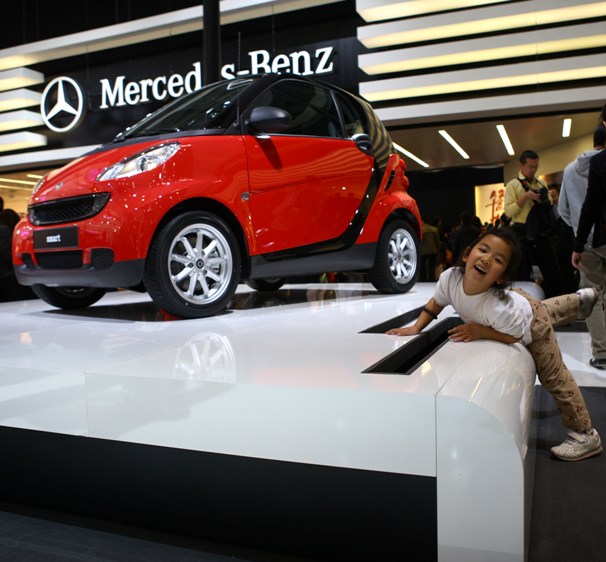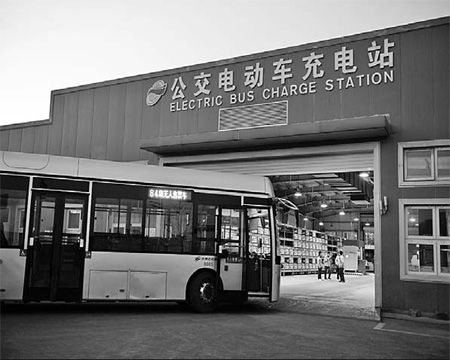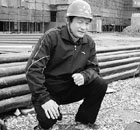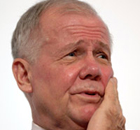Focus
No black and white fix for green challenge
By WANG CHAO (China Daily)
Updated: 2010-05-13 07:54
 |
Large Medium Small |
|
A SMART hybrid car is seen at the AutoChina 2010 car show that ended on May 2. Green cars made up a 10th of the 990 vehicls shown at the exhibition. Zou Hong / China Daily |
Vehicles powered by electricity may be the darling of auto makers, but private buyers are staying away in droves
Fan Yi owns three luxury cars, each worth more than 2 million yuan. Although money is not an issue for her, she is not willing to fork out an extra 100,000 yuan to buy a "green" hybrid car, powered by a petrol engine and an electric motor.
"I'm a practical person. The hybrid car claims to be 40 percent more fuel efficient than a regular car, but I don't think it will save me 100,000 yuan on fuel costs during the car's life," Fan said.
If a wealthy person such as Fan still cares about the "meaningless cost", then Zhang Yang's situation is easy to understand.
As a Toyota dealer at the Yayuncun Automobile Exchange Center, he hasn't sold a single Camry hybrid since it entered the market this month.
"People don't even bother to ask," he said.
| ||||
Hybrid cars are not alone in facing this problem. Another two members of the green car family - electric cars and fuel cell cars - face a bigger problem: they are usually seven to eight times more expensive than a regular car.
Zhang said the buyer resistance is understandable, especially toward electric cars.
"Who is going to buy it to invite trouble?" he said. "There are not enough recharge stations for the batteries around the city at present."
Although green cars are getting a cold reception from the public, they are the superstars of manufacturers.
During the AutoChina 2010 car show that ended on May 2, green cars made up a tenth of the 990 vehicles shown. Almost all exhibitors presented new green models, mostly hybrid or electric.
Why the difference? Song Jian, executive vice-president of Tsinghua Automotive Engineering Institute, said the answer is "policy".
In March, the State Council said it planned to subsidize green buses in 20 cities, paying up to 200,000 yuan for each.
"Now the government is encouraging green-car development with various policies, so manufacturers are swarming into this area," Song said.
"If there is a subsidy for producing green vehicles, manufacturers will use it."
However, makers tend to concentrate on buses - most of which are bought by the government - and other public transport vehicles.
The official website of the Beijing government said the city will buy 500 electric taxis from Foton, a Beijing-based manufacturer, by the end of this year. Last year, it bought 1,000 hybrid buses from Foton.
Zhao Jingguang, vice-Party secretary of the Foton Company, said: "We are not the first to do research on green cars, but we are the first to turn a profit on green cars."
He said Foton's deal with the government contributed much to that profit.
Foton has so far signed contracts with Beijing, Changsha, Guangzhou and Taipei to supply hybrid buses, with some already operating.
But no company is optimistic about the private sector. Although Zhang Shaochun, deputy minister of finance, said the State Council was planning to choose five cities, including Beijing, to subsidize individual purchases of private green cars, a detailed plan is yet to be released.
Now, no domestic maker is ready to produce green private cars on a large scale. Almost all green cars in the market are from overseas, Song said.
"It is still too expensive for individuals to support it, especially electric cars and fuel cell cars," Zhang Jinhua, deputy leader of a new energy team, 863 Project, said at the China Automobile Industry Forum 2010 last month.
Song said that unless costs come down significantly, the future of private green cars "won't be very promising".
"But the government can encourage individual buyers with favorable policies, like issuing a 'green license plate' for buyers, with which they are no longer subject to the old-even alternate driving restriction," he said.
Or it can simply cut the purchase tax on eco-friendly cars from 17 to 10 percent."
|
An electric bus at the charge station next to Beijing's Olympic Village. [Hu Qingming / For China Daily] |










